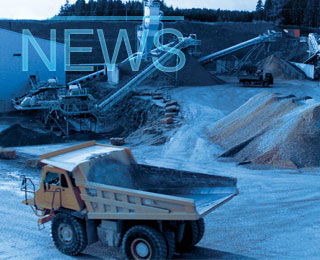The Mineral Products Association (MPA) is one of six organisations who have signed an open letter to university leaders in the UK, setting out the essential role of materials, minerals and mining in modern society. The letter from the MPA, along with the Critical Minerals Association (CMA) (UK), Institute of Materials, Minerals & Mining (IOM3), Institute of Quarrying (IQ), Mineral Products Qualification Council (MPQC) and Mining Association of the UK (MAUK), provides evidence-based information about the key role of materials, minerals and mining in daily life and the transition to a low-carbon, resilient and resource-efficient society. The signatories have also used the letter to shine a light on the need for a high-quality education and training pipeline for a skilled, responsible and sustainable materials, minerals and mining workforce.
As global demand for the resources required for modern life continues to rise, moving economies away from relying on virgin resources and towards a more circular economy will be crucial. The letter continues that this will only be possible if there are enough people with the required skills, education and training, with access to pathways into the industry and awareness of the employment opportunities available.
However, at the same time there are significant and growing skills gaps along minerals value chains and a decline in education and training provision, as highlighted by the IOM3 report ‘The Talent Gap: Critical Skills for Critical Materials’. Together with the CMA (UK) Perception & Engagement Working Group report, ‘A Talent Pipeline’, and the CBI Minerals Group UK Minerals Strategy update, the need to support a robust skills pipeline is clear. These publications set out a number of measures needed to mitigate the growing challenge of accessing skilled professionals, as well as showcasing career opportunities that exist in the value chain.
CMA (UK) Founder and CEO, Kirsty Benham, said, “If the UK wants to develop expertise, innovation and new businesses for critical minerals supply chains, it needs to build a talent pipeline of people skilled in geosciences, engineering, metallurgy and local planning. Building a talent pipeline is vital to ensuring that we have the skills and expertise needed to solve the innovation challenges of tomorrow and to meet the demand required to sustain modern society.”
Jon Prichard, CEO of MPA, added, “It is essential that UK universities continue to offer the educational programmes that equip graduates with the knowledge to support the net-zero journey for sectors such as the mineral products industry, which underpin the fabric of society. Mineral products literally provide the foundations for infrastructure and housing, while also being fundamental to the solutions that will deliver climate change adaptation.”
